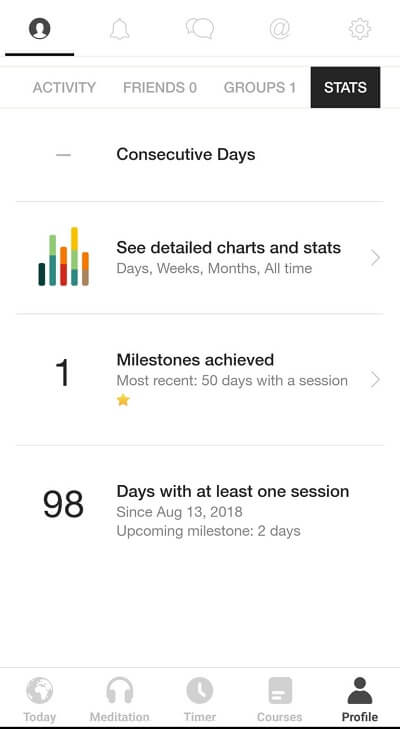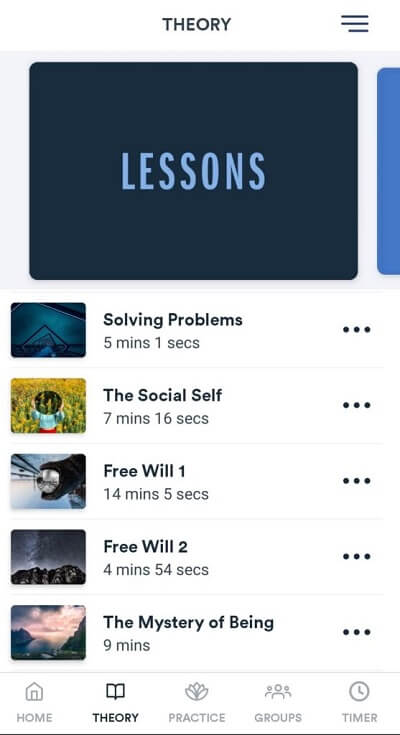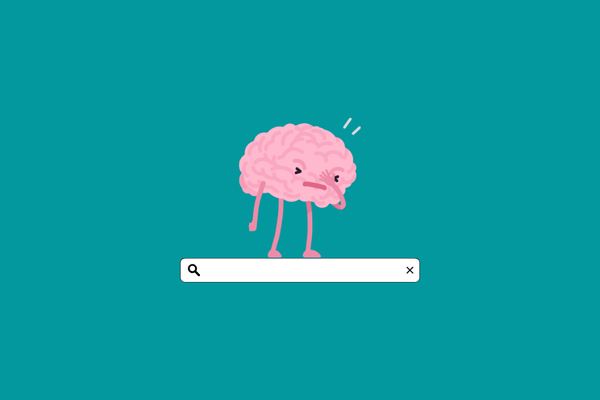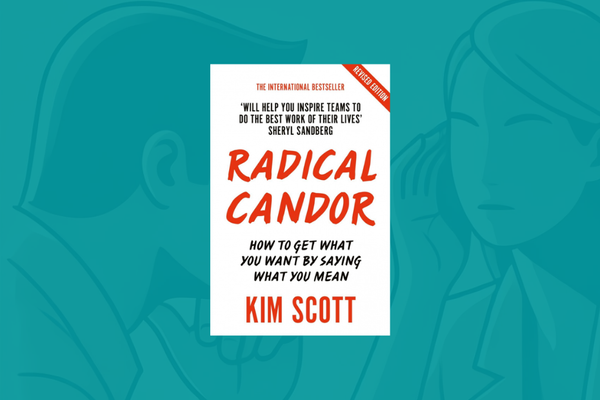Meditation at home - My experiences after 1 year and 3 apps
Are you less and less able to appreciate the little things? Is every day the same? Even if they were different, you don't notice? I felt something like that in the summer of 2018 when I downloaded a meditation app for the first time.

Friends who identified with the above sentiment suggested that I should try meditation. I had a strong sense of protest. I have doubts about anything oriental/spiritual, so I researched meditation first.
It turned out that I didn't need to decorate my room with Buddha statues to meditate, nor did I need to move to a monastery. I just download an app on my phone and the fun begins.
A little research and I discovered that
- many more people meditate than I thought (18 million in the US alone)
- meditation has scientifically proven positive physiological effects
- although there are many different types of meditation (similar to religious rituals), there are many resources on the internet about mindfulness meditation, which is the most popular meditation in the West.
The facts slowly decreased my resistance and I decided to give meditation a try.
I downloaded the first meditation app.
But let's not rush so far.
What is Meditation?
"Meditation, private devotion or mental exercise encompassing various techniques of concentration, contemplation, and abstraction, regarded as conducive to heightened self-awareness, spiritual enlightenment, and physical and mental health." - Encyclopedia Britannica
There are countless schools of meditation, most of which have their roots in Eastern religions. Many schools of meditation have attempted to make them comfortable to Westerners, but often the religious elements simply cannot be reproduced in any other way.
Perhaps the most influential in the West is vipassana meditation, often referred to simply as mindfulness.
Vipassana means seeing things as they are.
However, the Western version of mindfulness borrows only a few elements from the Buddhist tradition, omits several practices, and incorporates the achievements of modern psychology into its practices.
What are the benefits of meditation?
The effects of mindfulness meditation have been the subject of a surprisingly large amount of research and its positive effects have been scientifically proven.
The benefits of mindfulness meditation include
- Reducing the sensation of pain
- Reduces anxiety
- Reducing the risk of depression
- Improves memory and cognitive abilities
I have been meditating for a year, and I have only been practicing intensively for the last 50 days. I wasn't expecting spectacular results in such a short time, but I have noticed some positive changes that have helped me maintain the initial momentum.
Relaxation instead of stress
I tend to overthink things and kick myself incessantly over unimportant details. When several of these "little things" come together, in addition to harming my well-being, they also have a bad effect on my behavior.
Even in the first days of experimenting with meditation, I was calmer. This doesn't mean that since I've been meditating I don't get upset, but that I get upset by much less little things. This is good news for me and those around me.
If that were the only positive effect of meditation, I would continue.

Improved ability to concentrate
I go to a gym 2-3 times a week. This is nothing new for me, I've been working out with weights regularly for years. Most of the time, I am working out alone, which can easily turn into an easy workout.
When I start to get tired, my brain tries to trick me. After the 4th repetition, sometimes it's straight to the 6th, and other times I find myself not counting the reps at all.
Since I meditate I "miss" the counting much less often and stay on top of the workout in my head. I also put much more emphasis on breathing during workouts (although the two may be related).
Best meditation apps
I found it much easier to meditate at home than to sign up for a group class. What could go wrong? At most, I sit quietly for a few hours a month and nothing happens.
Being a beginner in the world of meditation, I wanted to practice in some structured way.
The first app I tried was Headspace.
Headspace
As a beginner, when choosing your first app, the opinions of others weigh a lot.
Headspace is the most downloaded meditation app, with countless positive reviews, and last but not least, it was the first to pop up for the term "meditation app" in the Play Store.
I completed Headspace's 7-day free course and got a taste of meditation. Andy Puddicombe, the creator of the app, doesn't promise to change the world in 7 days, but that period was enough to notice positive changes in me. I felt calmer, slept better, and enjoyed the meditation itself.
I was convinced by the effectiveness of Headspace for meditation, but with cute animations here and there, I didn't feel like I could pay for a meditation app yet.
So I looked for alternatives.
Insight Timer
Insight Timer is an app with thousands of free meditations, a kind of meditation marketplace. Hundreds of instructors upload their classes to the app, so there's plenty to choose from. I meditated with Insight Timer for almost a year.
Thanks to a built-in extra feature, you always get a little pop-up after meditation showing your weekly performance. If you've been meditating every day for three days, it's hard to break a good streak, especially if the app gives you a subtle indication.


The app helps you with actionable stats and gamified solutions.
Insight Timer has started to push users towards the premium version for understandable reasons. Instructors upload one or two sessions as free introductions, and you can access the sequenced lessons only by purchasing the course.
There are still thousands of meditations available from different instructors, but for me as a beginner meditator, the practice was not structured enough. Every time I came across new instructors I had to realize that there was much more to meditation than I had touched on before.
It was using the Insight Timer that I first encountered Sam Harris's meditations. After weeks of rotating through Harris's 2 free sessions, I came across one of my favorite bloggers Tim Urban's review of Sam Harris's new meditation app.
Just finished day 50 of @SamHarrisOrg's meditation app (https://t.co/134576aCHs). It's been a pretty big game changer for my relationship with my own mind. If you want a new take on a meditation app, try it out.
— Tim Urban (@waitbutwhy) October 1, 2019
Waking Up
Sam Harris is an American neurologist, philosopher, and writer. He is a member of the Intellectual Dark Web mentioned in the Jordan Peterson portrait. The author of countless books on religion and philosophy, he launched his meditation app, Waking Up, in 2018.
In contrast to the 7-day trial period of Headspace, Waking Up makes only 5 trial sessions available. In just 5 days, Sam Harris has introduced new elements compared to my practice the previous year.
In retrospect, the first few lessons of Headspace were more convincing, but I decided to continue with Waking Up.
50-day introductory course
The app first takes you through a series of 50 lessons. Sam Harris leads each meditation. Some people think Harris talks too much, but I felt the amount of interaction was just right.
Previously, listening to breath and sensations filled most of the course topics. Waking Up introduced practices that were completely new to me.
Through open-eyed meditation, visualization, still practices, and short lessons shared at the end of each session, I have made more progress than I had in a year before. Of course, this included making time for a 10-minute session every day for 50 days. I am sure that paying for the app helped me meditate regularly. I would probably have had similar feelings about Headspace if I had committed to it in the past.
Lessons, podcasts
After day 50, a new meditation is released every day, but you can always repeat previous sessions. You can choose the length of the daily meditation in each case: 10 or 20-minute recordings are available.
The app has a collection of lessons where Sam Harris talks about different spiritual topics in 5-10 minutes. The power of thought, free will, and training the mind are just a few of the topics Harris has recorded useful material on.

Sam Harris talks with various thinkers, writers, religious leaders for about 1 hour, available within the app. These conversations are particularly insight-forming. Harris doesn't stop at mindfulness, but can even talk about stoic thought with Professor William B. Irvine.
What's next? Meditation at home?
I feel I'm only scratching the surface of meditation, yet I'm experiencing many positive effects. What's next? I'll certainly continue to practice with Waking Up, but I'm curious about other teachers' methods, other people's experiences, so I'll probably drop in for a "classroom" session.
I hope you found my experiences with meditation and meditation apps useful. If you're into meditation at home, I wouldn't spend too much time choosing the perfect meditation app for you.
Almost all the meditation apps I know of set the bar high. For me, Waking Up was the winner, but you can't miss with Headspace, Calm, 10% Happier, or Buddhify.
Are you afraid of all things spiritual? Most of the meditation trends taught in the West don't require religious belief. The creator of the Waking Up app, for example, thinks of religions as a way of looking at things and a way of life.
I think meditation is worth a try.
Resources, notes
- How to meditate - Sam Harris
- The science behind meditation - Headspace
- Image source Simon Migaj
- Image source Greg Rakozy
... something else
Besides practicing at home and testing apps, I've been reading several books on meditation and mindfulness lately. I'm writing a newsletter about books worth reading, in which I've written about Dropping Ashes on the Buddha, a summary of Zen Master Seung Sahn's teachings.
You can subscribe by scrolling down.



